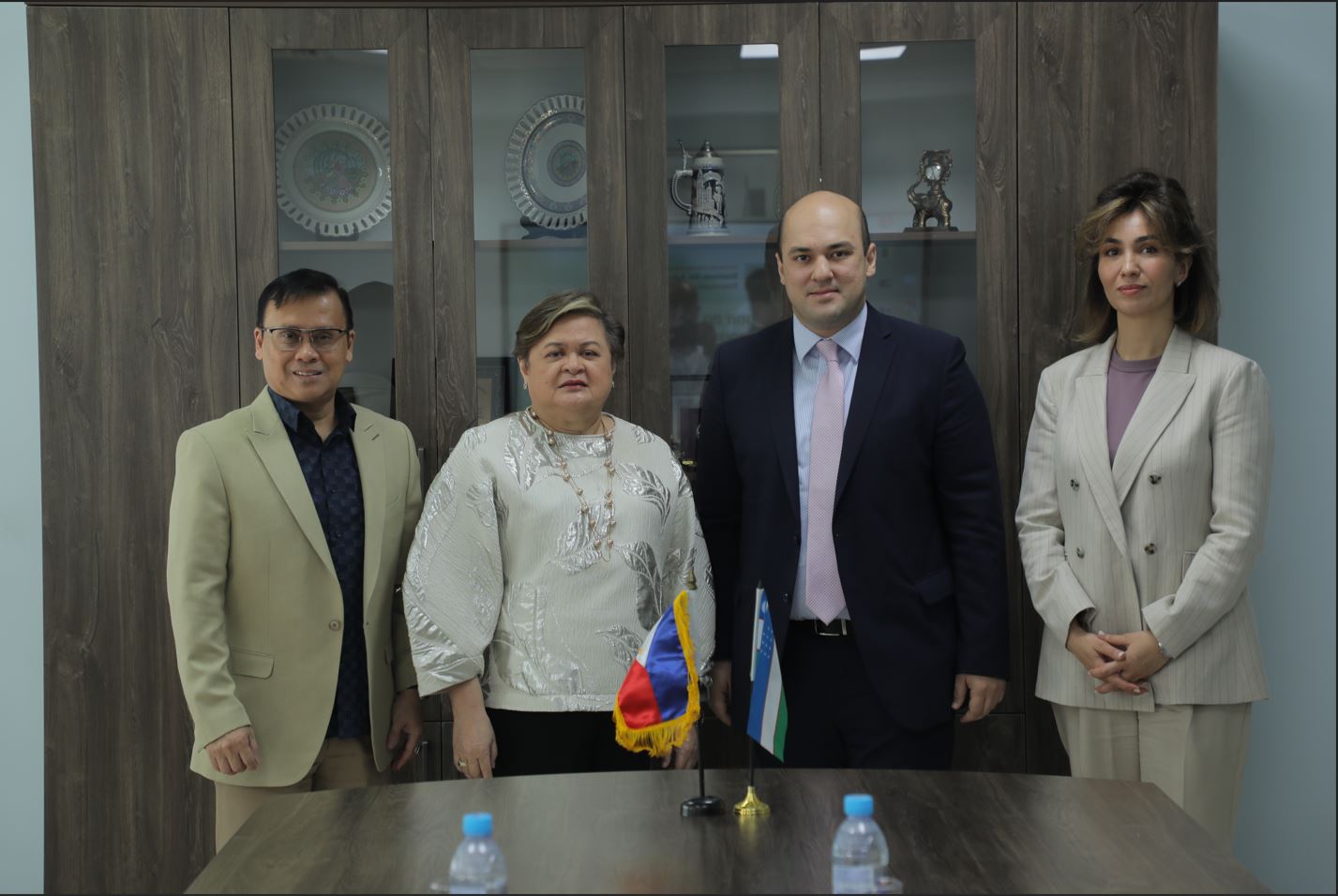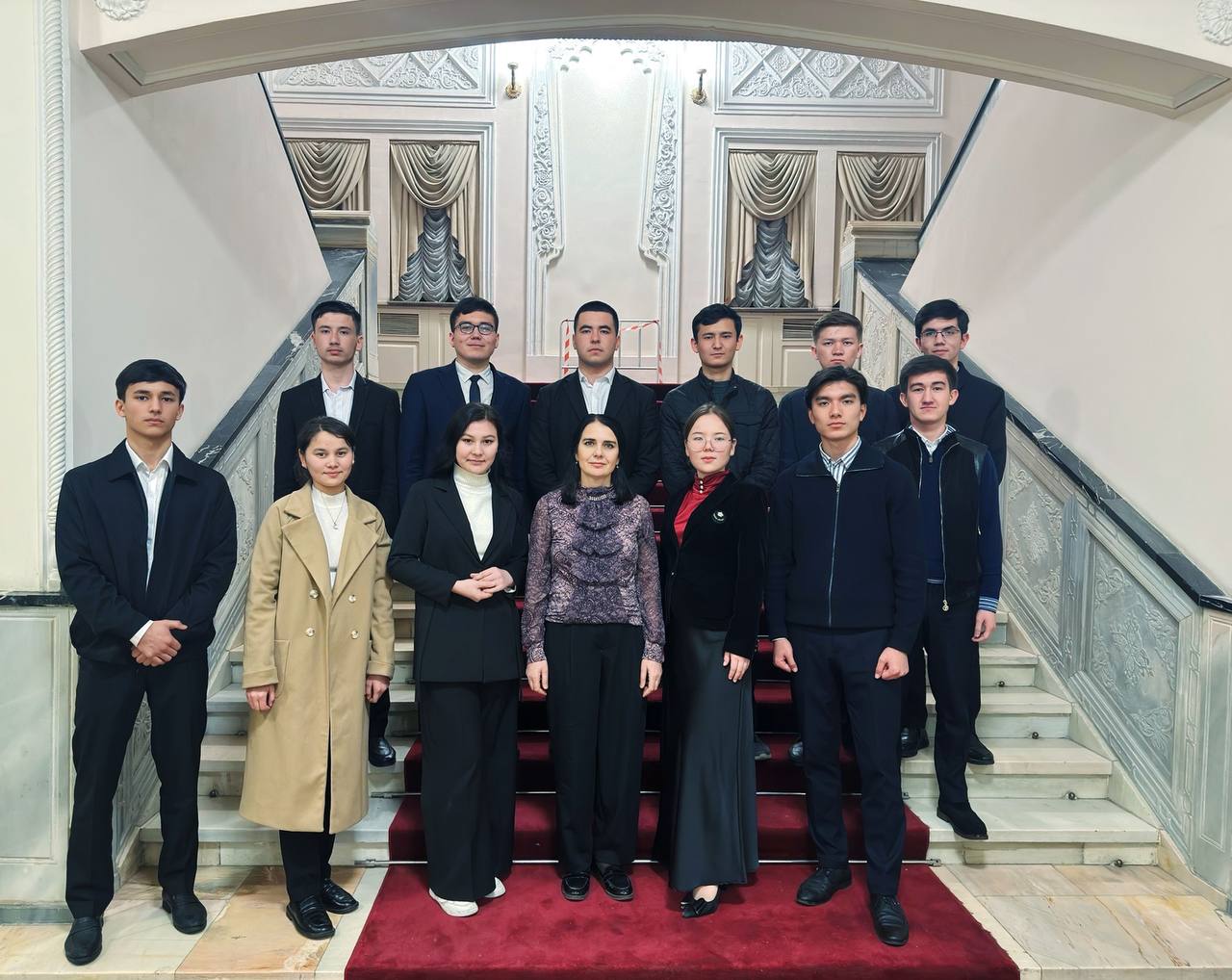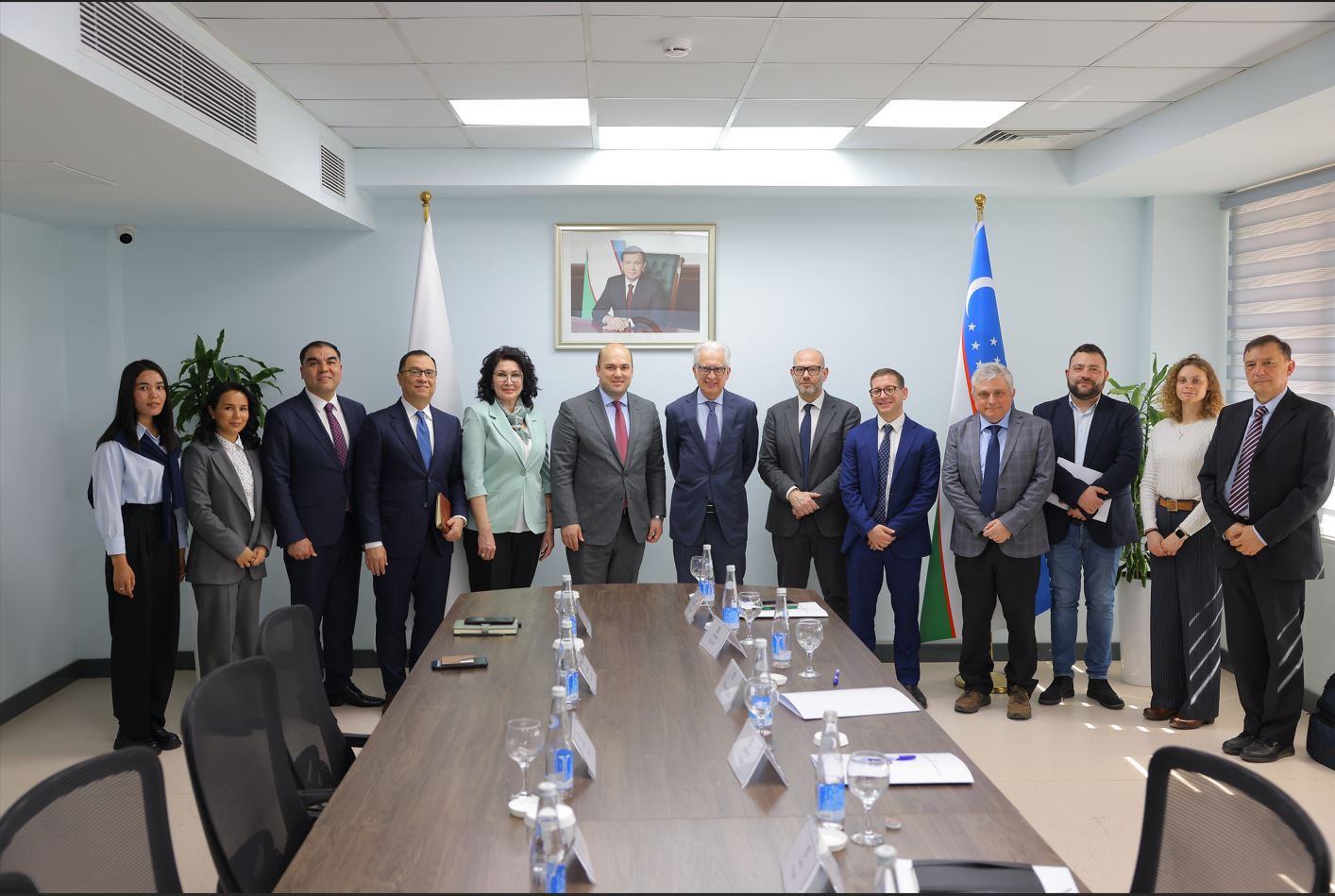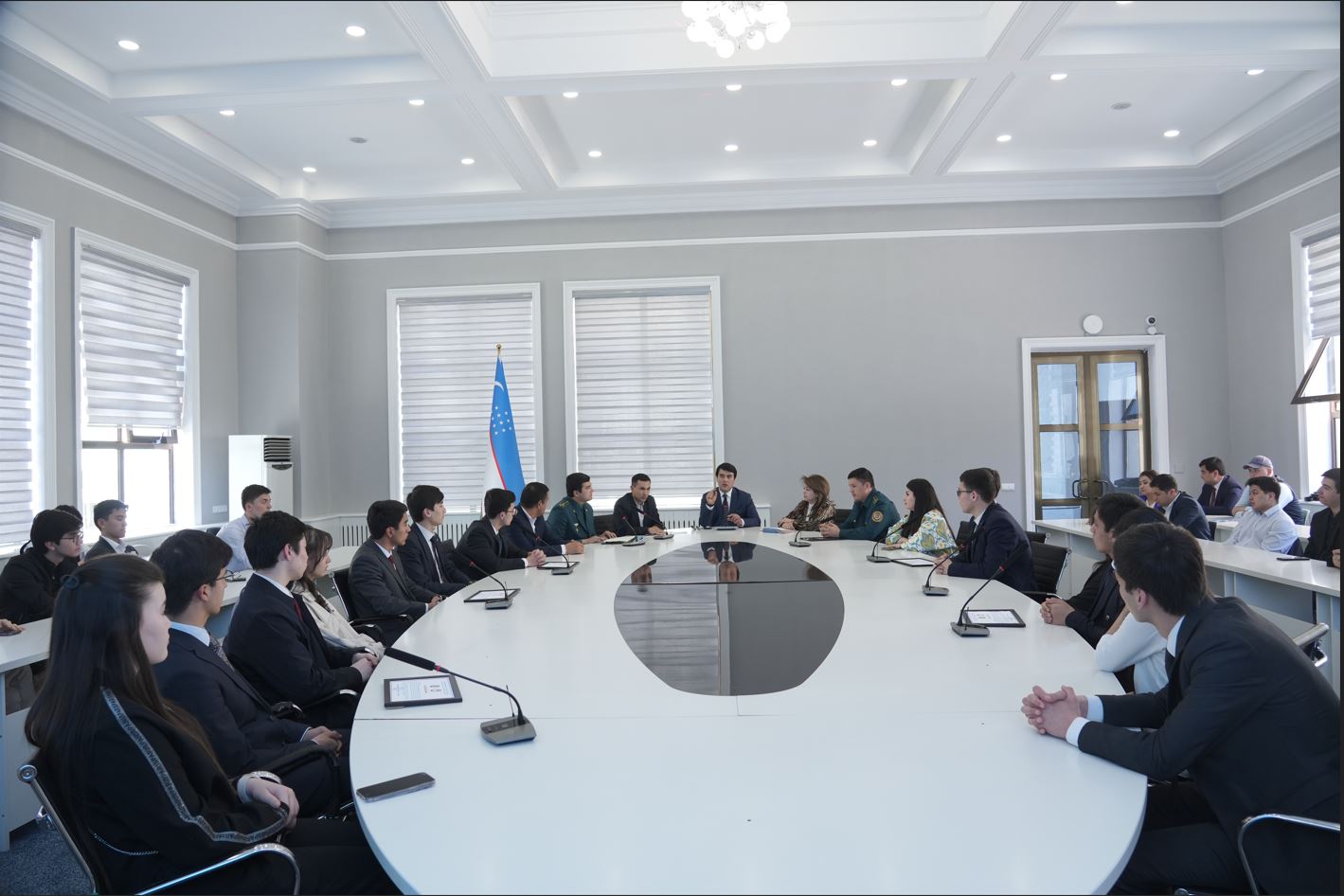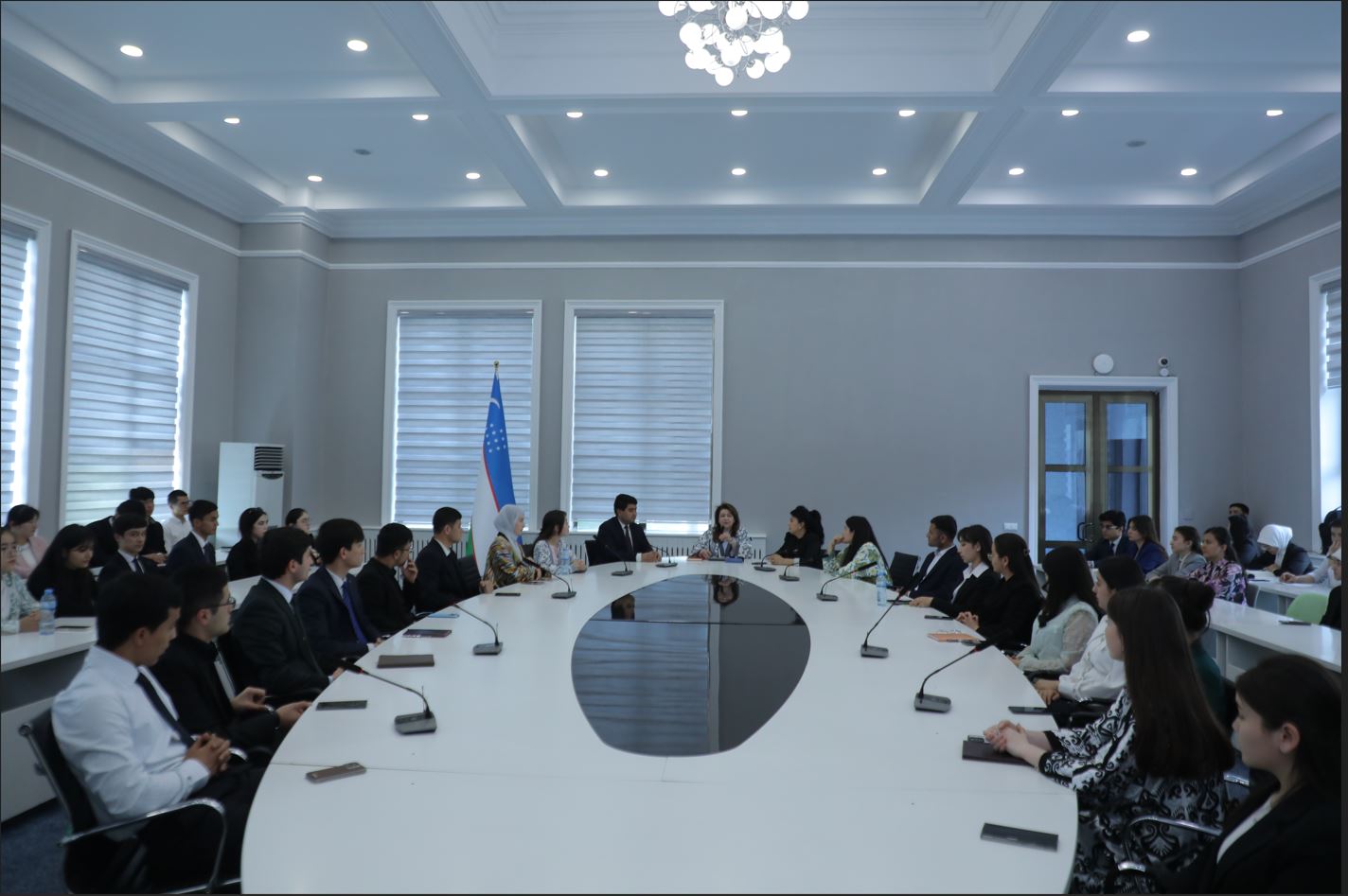
THE PHENOMENON OF NEW UZBEK DIPLOMACY
THE PHENOMENON OF NEW UZBEK DIPLOMACY
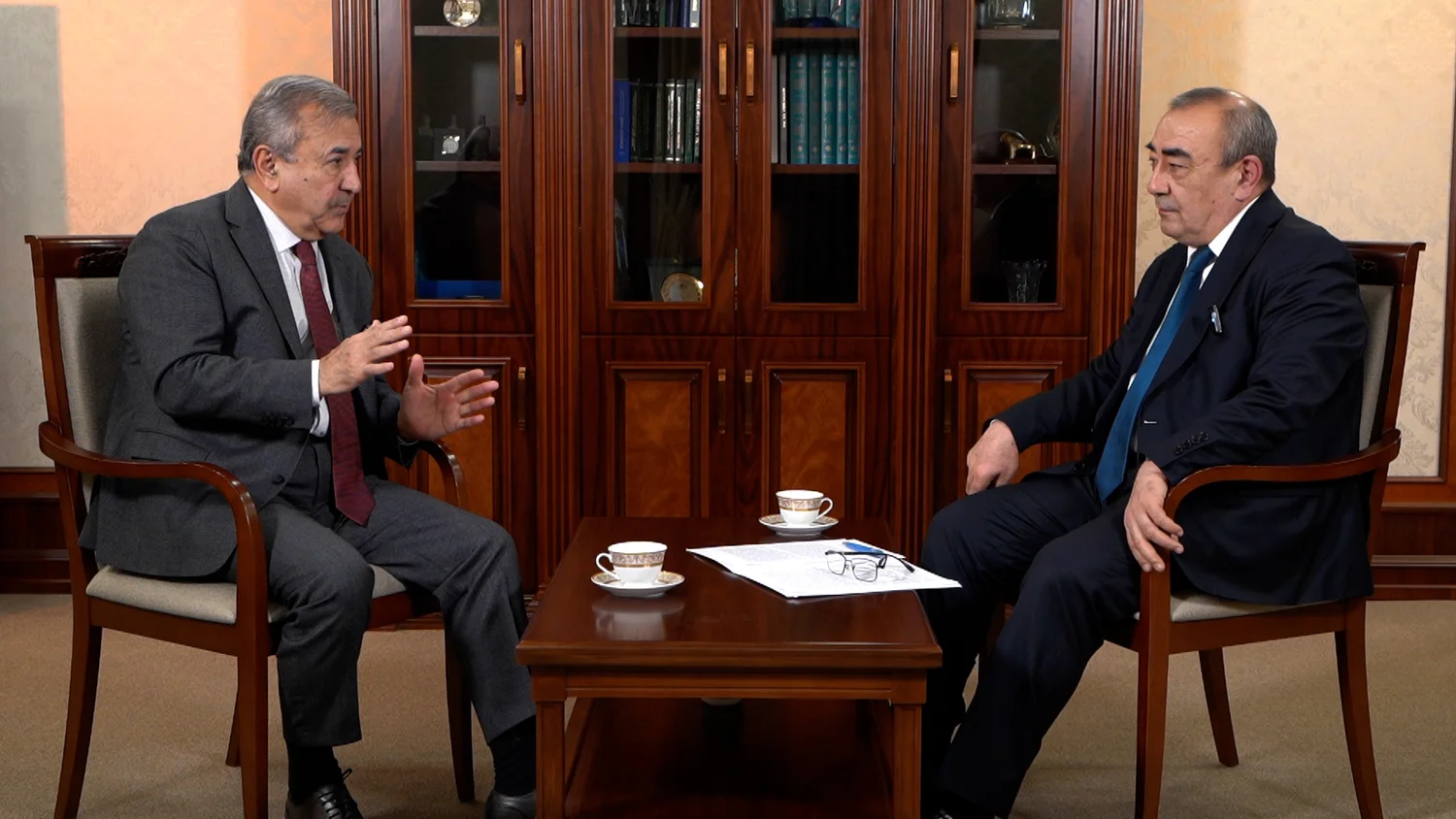
An interview with Sodyq Safoev, First Deputy Chairman of the Senate of the Oliy Majlis of the Republic of Uzbekistan and Rector of the University of World Economy and Diplomacy.
— Sodyq Salikhovich, since 2016, Central Asia has, in many ways, gained a new face. I’m referring to the region’s transformed status on the international geopolitical stage. Let’s start with your perspective on these changes.
— Indeed, in recent years, the changes taking place in Central Asia have become a subject of discussion among the world’s leading politicians—and for good reason. First, it reflects the growing interest in the region. Second, such rapid transformations across such a vast area in such a short period are rare in world history, in my opinion.
Let's go back to 2016. If we recall the situation at that time, Central Asia was in an alarming state: conflicts and contradictions, unhealthy competition between the countries of the region became more and more acute. Despite the fact that 25 years have passed since independence, the issues of border delimitation have still remained unresolved. But it was precisely the uncertainty on this issue that became the source of interstate disagreements. When the borders are not clearly marked, both sides have the right to make claims. One says, "This is our land," the other says the same thing, and the situation comes to a standstill.
In short, the situation was extremely challenging. On one hand, it was a potential source of instability. On the other hand, everyone understood that a country cannot be considered a full-fledged subject of international relations without clearly defined and recognized borders.
Unfortunately, at that time, the region’s leaders were not ready for constructive dialogue. The stubbornness of the political elites, the inability to think strategically and look to the future, as well as the inefficient use of diplomatic resources led to the fact that the issue of borders in Central Asia remained the subject of acute and sometimes dangerous disputes.
This inevitably created an international perception of Central Asia as a region lacking political maturity and unable to engage in dialogue or constructive cooperation. There was a noticeable lack of a mutually beneficial approach to solving the region’s key issues.
For example, until recently, there was no common strategy or structured dialogue on the shared use of transboundary water resources, which frequently became a source of sharp disagreements and even potential conflict.
The reality we observed then was that each country, metaphorically speaking, pulled the blanket over itself; no one thought about collective interests. The simple truth that sustainable development can only be achieved through solidarity and joint efforts was ignored. Under such conditions, it was difficult to refute the opinions and forecasts of experts about the region’s strategic uncertainty.
It was not unreasonable to suggest that Central Asia was on the brink of serious military conflicts, with events possibly unfolding along an explosive trajectory.
It was at this difficult moment that the turning point came. The leader of a new generation, Shavkat Miromonovich Mirziyoyev, came to power in Uzbekistan, a country that plays a key role in the region and has borders with all neighboring states. I am deeply convinced that from the very beginning he was clearly aware of both the scale of the accumulated problems and the need for urgent, decisive steps.
From his first days in office, he proposed a fundamentally new approach and a concrete program of action. Today, we can confidently say that this approach became the foundation of what is now referred to as President Mirziyoyev’s Doctrine on Central Asia, which has become the talk of the region.
A doctrine is a comprehensive system of views and actions reflecting a strategic vision. History remembers concepts like the Truman Doctrine, the Brezhnev Doctrine, and the Reagan Doctrine. The process we are observing in Central Asia today can rightly be called a doctrine for the 21st-century development of the region, based on principles of good neighborliness, mutual respect, and strategic partnership.
I am convinced that this doctrine has fundamentally changed the situation in the region.
First of all, the interstate dialogue was restored. But dialogue is a key element of any successful regional policy. We started discussing even the most acute and sensitive issues among ourselves.
The uniqueness of this doctrine lies in the fact that it proceeds from the understanding of Central Asia as a single space with a common destiny. In fact, no State can achieve sustainable progress alone. We are so interconnected that any problem that arises in one country will inevitably affect others. Conversely, the successes of one of the countries have a positive impact on the situation of the entire region.
Competition always exists and is natural. However, its nature determines the outcome. If it’s based on the principle of “I am better than you,” the prospects remain unclear. But if it’s driven by a desire for collective benefit, unity, and mutual support, then new horizons open. This strategy forms the core of Mirziyoyev’s doctrine.
Stubbornness and attempts to dictate terms with an “it will be as I say” mentality are the easiest but most dangerous paths, as I have noted before. Such an approach leads to deadlock. A more effective path involves jointly made decisions that consider all perspectives and existing issues. However, this requires not only political will but also the high art of dialogue.
One of the key examples is the water issue. Before 2016, there was a prevailing impression—eventually solidified as reality—that this "game" had winners and losers. But such a perspective is not a solution. On the contrary, it leads directly to potential instability in the region.
President Mirziyoyev proposed a different, constructive option: let's work out a common approach in which everyone benefits. This approach not only meets the interests of each side, but also, most importantly, eliminates the very basis of the conflict. This is proactive diplomacy, a new kind of diplomacy.
The world has recognized this step. As a result of this policy of reciprocity, the term “Spirit of Central Asia” has entered the international political lexicon. Today, the international community, major powers, and neighboring countries unanimously acknowledge that the architect of these changes is Uzbekistan’s President, Shavkat Mirziyoyev.
— Jennifer Brick Murtazashvili, director of the Center for Management and Markets at the University of Pittsburgh, a researcher who has studied Central Asia for many years, described the current geopolitical picture of the region in an interview: "It's time to see Central Asia for what it is. This is no longer the post-Soviet space. This is Eurasia. I think Central Asia has so far been viewed through a post-Soviet lens. But it was not viewed as the heart of the Eurasian supercontinent." Sergey Abashin, a well-known Russian historian and anthropologist, expressed a similar thought on his social media page last year. Commenting on Uzbekistan's success at the Olympic Games in Paris, he wrote: "The 2024 Olympics has become an event of exceptional importance. And not because of discussions about gender or art, but primarily because of the excellent results of the Central Asian countries, especially Uzbekistan, which took 13th place and won 8 gold medals. (Let me remind you that in addition to Olympic achievements, Uzbek chess players have also been steadily entering the world elite in recent years.) In the language of sports, we see how the countries of Central Asia are becoming significant and recognized players at the global level — and are realizing their subjectivity. This is a genuine historical shift, both in the world and in the post—Soviet space. It's a natural process that will continue to evolve." I think it's quite obvious what both researchers are pointing out. What do you think is the manifestation of the fact that the region is really becoming an independent political entity, or, to put it even more bluntly, is becoming an important actor in world politics?
— Your question is important both from a practical and theoretical point of view. Today, many people are not fully aware of the scale of the changes taking place. Central Asia, as a single region, is beginning to feel its historical and cultural identity — and at the same time, it is re-presenting itself to the world.
Other reputable experts agree with the opinion of the scientists you mentioned. For example, Professor Bernard Lewis of Princeton University, a well-known researcher, a world-renowned expert on Central Asia and the Islamic world, noted in one of our conversations: "Today, the region once again shines on the geopolitical map of the world as part of a wider civilizational space, as it was in ancient times and in the Middle Ages. Central Asia is increasingly perceived as an integral part of the Middle East, the Indian Subcontinent, and the Far East. It is no longer acceptable to look at it exclusively through the prism of the borders of the former Soviet Union or the Soviet Empire."
In this regard, I would like to emphasize one extremely important strategic thought of the President of our country: "Afghanistan is an integral part of Central Asia." If you think in terms of the old post—Soviet approach, Afghanistan is a "different" world. But taking into account modern reality, everything looks different. Afghanistan is a part of our common space. How can we "cut off" a country from the map, with which we are connected by common rivers, nature, culture and historical past? And more importantly, with whom we share trade corridors and infrastructure routes.
Another key idea that is increasingly being heard in the international arena from the mouth of the head of state: "Afghanistan should be viewed not so much as a source of threats, but as a source of opportunities for the entire region." Stability in Afghanistan is beneficial to everyone. First, partnership and peace in this country will become the embodiment of the long-standing dream of the Afghan people themselves. For us, it means opening the door to a space of peace, sustainable development, economic and political prospects.
It's no secret that the current situation in Afghanistan is like a wall separating us from South and Southeast Asia. If stability is established there and the trans-Afghan transport corridor is implemented, Uzbekistan's path to world markets will be reduced by three to four times.
Today, logistics costs in the structure of our foreign trade amount to 20-25 percent — these are colossal figures. The nearest seaport is three thousand kilometers away. And I would say without exaggeration that there is no other country in the world with such limited logistical capabilities. While the basis of modern international trade is ports and direct access to the open sea.
If Afghanistan "opens up", it will be a tremendous opportunity for us. People will feel relieved. The level of well-being will increase. The economy will have long-awaited access to the global transport infrastructure.
If we return directly to your question, what is the correct name for our region today, where the peoples have been living for thousands of years: Central Asia, Transoxiana, Turkestan — in my opinion, the matter is not in the name. The main thing is that the region has a unified identity.
And in this context, a fair question arises: Europe has a common identity, why can't Central Asia have the same foundation? Someone might object: "They don't speak the same language in the region." But there are also many languages in Europe, and this does not prevent it from being united. Europe has a common historical heritage, similar cultures and values. These are European values.
Central Asia also has its own deeply rooted values. And no one can deny it. Dear Shavkat Miromonovich Mirziyoyev relies on this factor. And this is of fundamental importance.
— One cycle of work of the Advisory Council of the Heads of State of Central Asia has been completed, the second has started. A legitimate question arises: isn't it time to institutionalize this format?
— Integration and institutionalization are not just technical terms, but complex processes, behind which there is a huge political and historical responsibility. They require maturity, a high level of mutual trust and coordination of actions.
Why did Europe become the European Union? Because a unified system has been built on this continent, common principles, norms, and values have been developed. This is the result of a long and consistent historical path.
Central Asia, in my opinion, is just beginning this path. And instead of prematurely forcing the creation of supranational structures above sovereignty, it is important for us today to focus on deepening real cooperation in the economy, transport, security, humanitarian and cultural spheres. That's what you should think about first.
And it is obvious that under the leadership of Shavkat Miromonovich Mirziyoyev, large-scale, systematic work is underway in this direction.
Recently, the University of World Economy and Diplomacy hosted a presentation of a book on the history of Uzbek diplomacy. At this event, the Ambassador Extraordinary and Plenipotentiary of Kazakhstan to Uzbekistan rightly noted: "The bright initiative of the President of the Republic of Uzbekistan Shavkat Miromonovich Mirziyoyev to hold consultative meetings has changed the fate of Central Asia." This is a deep and accurate assessment.
And here it is appropriate to emphasize one more important point. In politics, initiative is the norm. But its real result, as a rule, is not always immediately obvious. However, in the case of the initiative mentioned by the Kazakh diplomat, the situation is different.: it really changed the face of the region and saved it from serious upheavals. Thanks to her, it was possible to avoid a large-scale conflict and stabilize the situation in Central Asia.
A reasonable question arises: why does it happen that the initiatives of some politicians, even if they do not bring real results, receive international awards, including the Nobel Peace Prize, while other truly effective efforts are treated with distrust or bias?
History knows many examples when high-profile peacekeeping titles and awards were followed by new conflicts and wars. At the same time, the international community does not always attach due importance to the fact that the leader of such a key state as Uzbekistan comes up with a noble initiative supported by a specific program and a verified political doctrine on a regional scale.
I am convinced that efforts aimed at preserving peace, strengthening sustainable development and stimulating economic growth in such an important and sensitive region deserve the highest international recognition, up to the Nobel Peace Prize.
History confirms that Central Asia has always had a significant impact on the fate of the four largest civilizational areas — China, India, the Near and Middle East, as well as Europe through Russia.
The contribution of people from the region to the formation and development of great powers is indisputable. It is enough to recall the Timurid Empire, the Mughal dynasty in India, and traces of our culture in Chinese philosophy and science.
Today, Central Asia is once again becoming a key hub in the system of Eurasian relations.
The most important transport corridors connecting East and West, North and South pass through the region. Energy potential, demographic resources, and a growing domestic market all make Central Asia an important player on the global stage. Especially given the rapid development of countries such as China, India and Pakistan, the region's role in ensuring sustainable growth and security will only increase.
The civilizational mission of Central Asia is becoming particularly relevant today. The modern world is facing new challenges: conflicts caused by misunderstandings between cultures, religions, and value systems are becoming more frequent. And Central Asia has historically been a space of intercultural dialogue. We are both part of the Islamic world and active participants in the OSCE, which means we have a unique ability to be a bridge between East and West.
This multicultural, tolerant space can become a model for global coexistence.
In this sense, the policy pursued by Uzbekistan is not just a course for development. This is a contribution to the formation of a new international reality based on mutual understanding, a balance of interests and respect for diversity. And this achievement, without any exaggeration, has not only regional, but also global significance.
— Sodyq Salikhovich, in what way, in your opinion, are the outlines of a new, original Uzbek diplomacy particularly evident today?
— The ability to learn from history is one of the most important conditions for sustainable development and progress. Why in the past did the states that emerged on the territory of Central Asia, and in particular Uzbekistan, have the power and authority comparable to modern world powers?
It's hard to believe, but in the 9th–11th centuries dirhams minted in Samarkand served up to 70% of world trade. They were the currency of their time, similar to the current dollar. Historical sources say that even the Vikings in Scandinavia exchanged their loot for Samarkand dirhams, so high was their authority and reliability. Behind this currency stood the economy, intellectual potential, science, military force — everything that makes up the essence of a powerful state.
How did we manage to reach this level? And why have we lost it? The answer, in my opinion, is obvious: at that time, conditions were created in our region for large-scale trade, scientific exchange, and cultural integration. It wasn't just about neighboring towns or villages. Samarkand was in contact with Byzantium, Korea, and India. It wasn't just the movement of goods, it was the exchange of ideas and knowledge.
Legal, institutional, and infrastructural conditions were created for this purpose.
It is thanks to this that the Oriental Renaissance arose.
Today, Uzbekistan's foreign policy is a policy of openness, multi—vector approach and readiness for dialogue. Until 2016, we essentially existed behind closed doors: the borders with our neighbors were literally mined, and regional trade accounted for only 8%. Today, it has grown several times and reached 11 billion dollars. This is a direct result of the President's foreign policy strategy — a vivid example of how the lessons of the past can inspire the present.
Uzbekistan is no longer an observer, but has become an active participant in international processes. Our foreign policy is well known and respected. She is distinguished by pragmatism, initiative, resilience and a clear focus on results.
Previously, our diplomacy was predominantly reactive — we responded to challenges after the fact — but now we have switched to a proactive, proactive model. It is this approach that brings strategic victories.
Thanks to this policy, over the past 7-8 years, Uzbekistan has become the author of ten resolutions of the UN General Assembly, adopted unanimously. This is a unique result even for large states.
And we are not talking about declarations divorced from life. These are concrete steps aimed at solving pressing problems: overcoming the consequences of the Aral Sea disaster, ensuring sustainable development, supporting parliamentarism, and forming an advisory format for dialogue between the leaders of the region's countries. All these initiatives were put forward by President Shavkat Mirziyoyev and received broad international support.
We recently summarized the results: in recent years alone, Uzbekistan has put forward more than 300 initiatives on various international and regional platforms — not only at the UN, but also within the framework of the Shanghai Cooperation Organization, the CIS, as well as other formats related to Central Asia. More than three hundred initiatives!
Such proposals are not born in one day. Each of them is based on deep analytical work, accurate calculations, awareness of the consequences and expected results. All this clearly demonstrates the weighty, systematic, pragmatic and proactive nature of the new Uzbek diplomacy.
The development of States with regional status always has an impact on the fate of the surrounding countries. And Uzbekistan is turning step by step into just such a state. This is also recognized internationally. Moreover, in recent years we have seen another key turning point: Uzbekistan is actively involved not only in solving regional but also global challenges.
When we talk about cross—border threats, we mean those challenges that do not recognize state borders. No country, including the most developed, is capable of dealing with them alone. This is especially true for environmental risks, migration waves, and security threats.
Collective efforts are needed here. And Uzbekistan, learning from the past, suggests coordinating such efforts. This is a mature, far-sighted, responsible approach. The approach of a new diplomacy that combines principles and pragmatism, historical heritage and modern challenges.
This political doctrine and diplomatic achievements are based not only on the desire to preserve peace, but also on actively contributing to its strengthening and advancing the region towards sustainable development. The Central Asia—European Union Summit, which is taking place in Samarkand these days, is a logical continuation of this idea and its convincing confirmation.
Held under the chairmanship of our President, the summit has become not only a symbol of the rapprochement between Europe and Asia, but also a clear evidence that the new Uzbek diplomacy has reached a qualitatively new level.
The summit, organized under the motto "Investing in the Future," demonstrates that Uzbekistan's foreign policy is based not only on economic interests, but also on civilizational, humanitarian, and universal principles. The participation of the leaders of the European Union, the presidents of Central Asian countries, and the heads of international financial institutions in the event clearly shows:
Uzbekistan has taken its rightful place in the new geopolitical architecture of the world.
The doctrine of the head of our state, Shavkat Miromonovich Mirziyoyev, is now becoming not only a regional, but also a global political platform.
This is no longer just a strategy for Central Asia, but a path to sustainable development and a civilized dialogue in the space from Afghanistan to Europe. The Samarkand Summit became a practical embodiment of this idea, an expression of a new political philosophy.
This is a new stage in the development of Uzbekistan as an independent and influential political entity in the international arena. And, without a doubt, this is a historic victory for the political doctrine of President Shavkat Mirziyoyev.
— Sodyq Salikhovich, thank you for such a deep and informative conversation!
The editor-in-chief
of the newspaper "Ishonch" and "Doveriye"
Khusan Ermatov spoke.
